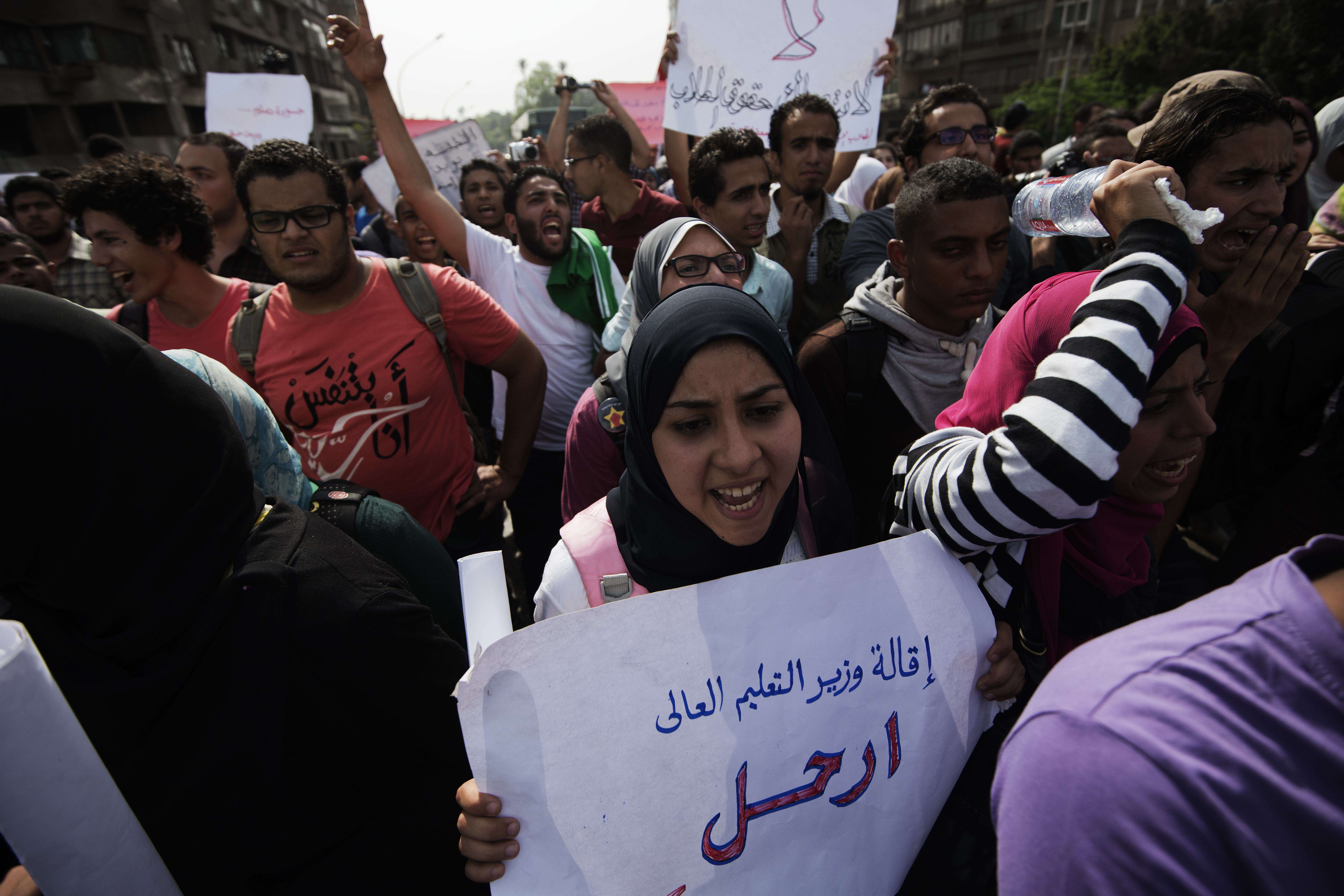
(AFP Photo)
Political student movements threatened on Monday to escalate their “state of rage” by joining labour protests scheduled for Wednesday by worker activists.
Students across Egypt took to the streets on Sunday, announcing it a day of “student rage”. They protested the aggressive handling of student movements by security forces and university staff, as well as the gross neglect of students’ needs by universities.
In a press conference held at the Association for Freedom of Thought and Expression’s (AFTE) headquarters, student representatives from Misr Al-Horeya Party, Al-Tayar Al-Sha’aby and the Socialist Popular Alliance Party (SPAP) stated that the minister of higher education is purposefully neglecting their demands.
The students released a statement where they outlined several demands, starting with the release of all students currently detained. They also demanded the presence of private security companies to secure universities without infringing upon student activities. The students called for reforming student dorms, amending the governing bylaws, and amending the universities law in a manner which would allow university independence.
The students voiced their disappointment with how Sunday’s protests were met. Mohamed Mustafa, a student at Ain Shams University and member of Al-Tayar Al-Sha’aby, said; “We expected our protest to be received honourably. However, we found an overwhelming security presence.”
The students denied the participation of any Muslim Brotherhood students or Salafi students in Sunday’s protests.
Ahmed Adel, member of Misr Al-Horeya Party’s student Movement, said: “We offered the Brotherhood’s student movement the chance to take part in the protests on Saturday, but they never replied to our offer.”
Adel stated that the Brotherhood student movement only cares about putting an end to the “acts of thuggery” taking place inside universities. “They don’t care about any other student demands,” he said.
The Muslim Brotherhood student movement released a statement Sunday, where they also called for reforming student dormitories. They demanded the formation of a fact-finding committee to look into the cases of violence, food poisoning and death which took place in a number of universities recently.
The Brotherhood students highlighted their rejection of all “acts of violence” taking place in universities and called for hiring security companies specialised in protecting students. Lowering textbook prices and drafting separate bylaws for private universities were also among their demands.
The students highlighted a sit-in organised by students at the Thebes Academy. The sit-in has been ongoing for nine days, with students demanding certificate accreditation for their degrees.
Mohamed Alaa, a Thebes Academny student, stated that the accreditation expired in May 2012. “It’s been almost a year and it hasn’t been renewed yet,” he said.
At the end of the press conference, the students confirmed they will keep pursuing their demands until they are finally met.
On Saturday, hundreds of Al-Azhar University students protested the death of their colleague Ahmed Al-Baz inside the university clinic. They accused the university of gross negligence which led to Al-Baz’s death.


